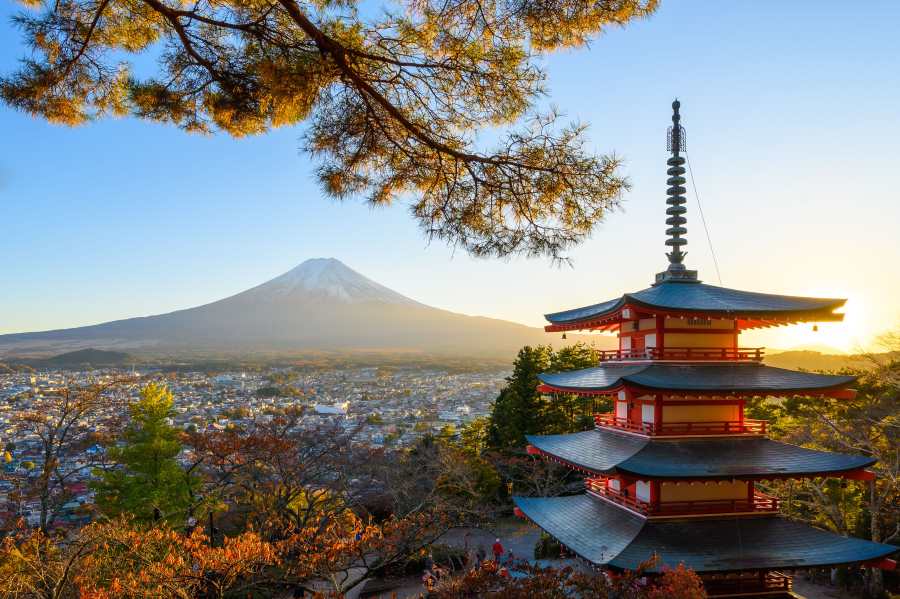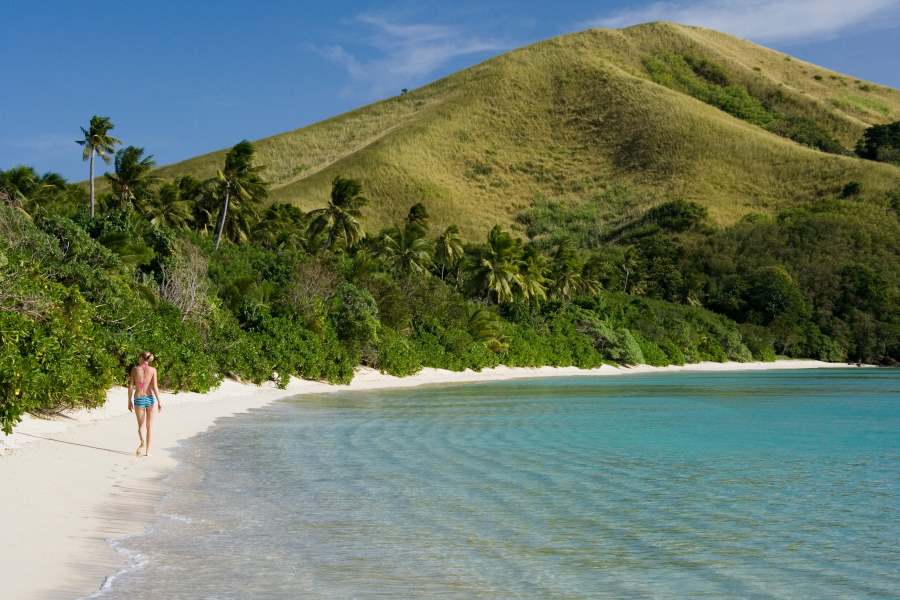
Premium Starting ₹395

24x7 Missed Call Facility



Travel Insurance
Trip Type
- Country
- Geography

Premium Starting ₹395

24x7 Missed Call Facility


Best Time to Visit Fiji from India

The best time to visit Fiji is October end and early November. When it comes to visiting Fiji, all days might be the same, but there can never be a bad day. So, what exactly comes to your mind when you picture a tropical paradise? Well, Fiji might perfectly fulfil your expectations if you put colours to your imagination. Magical is the term you can use if you want to describe Fiji in one word.

Table of Contents

Best Months/Seasons to Visit Fiji
If you are trying to find the best seasons for travelling to Fiji, follow the list discussed below:
| Month | Average Temperature | Description |
| May-October (Dry Season) | 24 to 29 degrees Celsius | The dry season offers pleasant temperatures and less humidity, making it ideal for beach activities, diving, and exploring islands. Popular events during this time: Bula Festival (July), Hibiscus Festival (August), and Diwali. |
| November-April (Wet Season) | 24 to 31 degrees Celsius | The wet season is characterised by higher humidity, occasional rain, and tropical storms, but it’s a good time for fewer crowds and lush landscapes. Popular events during this time: Fiji Day, Diwali, Fiji Pro Surf Competition (November), and South Pacific Cultural Arts Festival (December/January). |
May-October (Dry Season)
The dry season in Fiji offers warm and pleasant weather, making it the ideal time for outdoor activities and beach enjoyment. Low humidity and minimal rainfall make it the peak tourist season, perfect for diving, hiking, and exploring the islands.
Here are some of the key details you should know about this season when planning for a trip to Fiji:
| Weather | Warm and dry with occasional cool breezes |
| Temperature | 24°C to 29°C |
| Season | Peak |
| Season for Localities | Hibiscus Festival, Bula Festival |
| Key Highlights |
|
November-April (Wet Season)
Fiji’s wet season is marked by higher humidity, frequent rainfall, and the potential for tropical storms. Despite the weather, this off-season is a good time to enjoy lush green landscapes, less crowded attractions, and vibrant cultural events. This period includes significant festivities and traditional celebrations.
Here are some of the key details you should know about this season when planning for a trip to Fiji:
| Weather | Humid with frequent rain, possibility of storms |
| Temperature | 24°C to 31°C |
| Season | Off |
| Season for Localities | New Year’s Celebrations, Christmas, South Pacific Cultural Arts Festival |
| Key Highlights |
|
When to Avoid Visiting Fiji?

It is advisable to avoid visiting Fiji from November to April due to the wet season, which brings higher humidity, frequent rainfall, and the potential for tropical storms. This period, while offering lush landscapes, may disrupt travel plans and limit outdoor activities.
| Months to Avoid | Reason |
| November to April (Wet Season) |
|
Seasonal Travel Costs of Visiting Fiji from India
Travel costs to Fiji from India vary significantly depending on the season. Here’s a brief overview of costs across different seasons:
| Season | Average Flight Cost | Average Hotel Cost per Night | Description |
| Dry Season (May-October) | ₹75,000 - ₹95,000 | ₹8,000 - ₹15,000 | Peak tourist season with higher travel and accommodation costs due to favourable weather and increased demand for outdoor activities and attractions. |
| Wet Season (November-April) | ₹65,000 - ₹85,000 | ₹5,000 - ₹10,000 | Off-season travel offers the lowest prices but comes with the likelihood of frequent rain and potential cyclones, which can limit outdoor activities and excursions. |
Things to Know Before Visiting Fiji
Now that you know the best time to visit Fiji, it would help if you learned a few things before planning your trip:
- You don’t have to worry if you see people walking around with machetes. People in rural or village areas use this for their work.
- “Bula” and “Vinaka” are the two most common words you will hear when in Fiji. You should consider learning these two to greet the Fijian people with greetings and smiles. Bula is the Fijian greeting, and Vinaka means "thank you".
- Avoid eating reef fish in Fiji or on any South Pacific Island. These shallow water fish sometimes get infected due to a toxic bloom.
- The national speed limit is set at 80 kmph by police. So, if you are caught speeding up, you might have to pay a fine.
- Fijian Christians are very particular about their religion and visit the church every Sunday.
- Go shopping for the local products in Fiji; they are way cheaper than the exported goods.
- Refrain from wearing revealing clothes when visiting small towns and villages. It is advisable that women cover their shoulders and wear long skirts or pants & men should consider wearing long shorts and shirts.
- You will encounter more animals than humans on the roads of Fiji. Hence, stay alert while on the road driving, biking or just walking.
- Music is the soul of Fiji. When you arrive, you will be greeted with cheerful singing.
- Fijian tradition and culture will surprise you every minute. For example, if you have booked a honeymoon Fiji package, you might receive a frangipani behind your right ear, which means you are married. If it is behind your left ear, it shows that you are unmarried.
- If you get a chance to experience the Kava Ceremony, do not miss it. This drink, made from a root-based plan, is believed to soothe your soul. If the Fijian leader offers you a bilo (cup), drink it at once and say "Bula", which means Good Health.
Tips for Travelling in Fiji
Here is a list of tips that you can go through to ensure you have the perfect trip to Fiji:
- Avoid travelling at night as it is not safe, especially for women. It will be better if you get a taxi if you are out at that time.
- Always choose to drink filtered or boiled water. Also, avoid rock melons and make sure that your food is piping hot.
- Always carry mosquito repellent spray or cream, especially in the evenings.
- Tipping is not acceptable in hotels and restaurants. However, you can contribute in fund boxes such as the Christmas Fund box, placed at the check-in counter, which is later fairly distributed among the workers.
- When you are visiting a small village or community, make sure you bring a little gift. This is considered their welcoming culture. This gift-giving ritual is known as "Sevusevu”.
- Make sure that you carry cash with you at all times, as there are limited ATMs in Fiji. Some shops might accept credit cards.
- You can find free one-on-one babysitting facilities among the Fijians as they take family very seriously.
- Do not go shopping on Sundays as it will be a waste of time. Most of the shops are closed due to Church visits.
What Phrases Should You Know Before Travelling to Fiji?
When visiting a new nation, tourists need to be familiar with some terms and expressions from the local tongue. Similarly, being able to communicate with the locals using a few Fijian terms will make you feel at home.
You can consider learning these few Fijian terms before you book those Fiji tour packages from India:
| English | Fijian |
| Greetings or good health | Bula |
| Thank you | Vinaka |
| Goodbye | Moce |
| Morning greeting | Yadra |
| Please | Kerekere |
| How are you? | Vacava tiko |
| I love you | Au domoni iko |
| No worries | Sega na leqa |
| See you later | Sota tale |
| Sit down | Dabe ira |
| Stand up | Tucake |
| Come and eat | Mai kana |
| Why? | Baleta |
| Have a safe journey | Vainui vinaka e nomu volau |
| What is your name? | Na yaca o cei? |
| Nice to meet you | Au marautaka na sota |
| Where is the bathroom? | E vei na vale lailai? |
| How much does it cost? | E vica na kena i-sau? |
| I don’t understand | Au sega ni kila |
| Can you help me? | O rawa ni vukei au? |
| What time is it? | Vica na kaloko? |
| 0 | Sefira |
| 1 | Dua |
| 2 | Rua |
| 3 | Tolu |
| 4 | Va |
| 5 | Lima |
| 6 | Ono |
| 7 | Vitu |
| 8 | Walu |
| 9 | Ciwa |
| 10 | Tini |
By now, you should have an idea of the best time to visit Fiji, what you can do there, and what the best Fiji tourist attractions are. Buy something locally made from a local souvenir store and say “Moce" or maybe 'Sota tale” to the friendly Fijians.
However, it is advisable to get overseas trip insurance before booking your flight tickets. It will provide coverage if you lose your luggage, passport, etc. Having a travel policy will provide you with a piece of mind in the picturesque land of Fiji.













